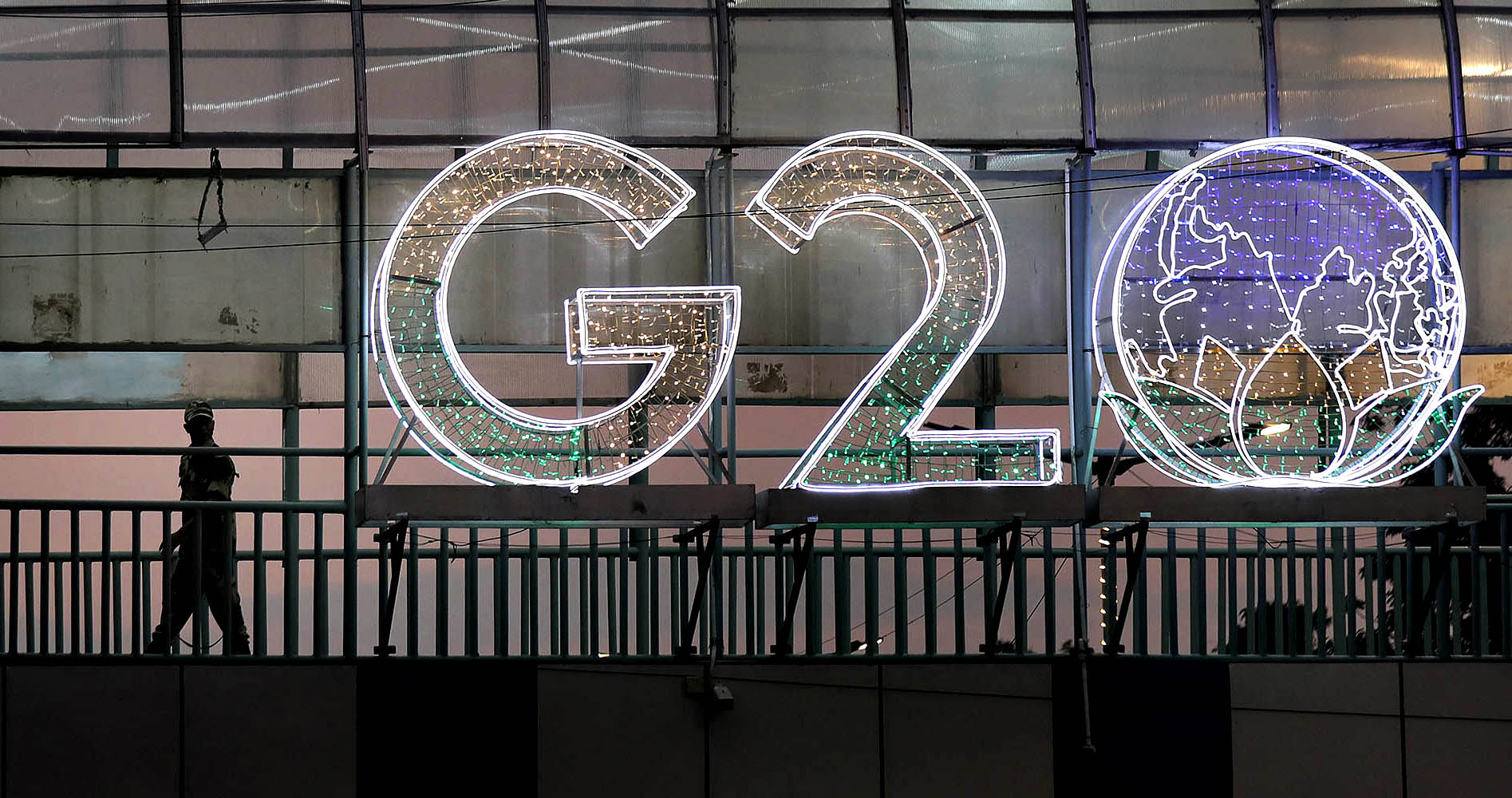I have to admit, when I first sat down to write about the G20, I was confused. Sherpas, finance tracks, engagement groups, summits upon summits. It felt like drowning in an alphabet soup of diplomatic acronyms. So, dear reader, let’s break it down.
The G20 is where the world’s biggest economies meet and try to keep the global financial system from careening off the rails. It began in 1999, after Asia’s financial crash as an informal forum for finance ministers and central bankers. By 2008, when the global financial crisis hit, heads of state decided to get involved.
Today, it covers everything from trade and tax, to climate change, tech, food security and even gender equality. The 19 member countries plus the European Union and the newly admitted African Union represent 85% of global GDP, three-quarters of world trade and two-thirds of the world’s population.
Read more: Controversy and speculation swirl around next two G20 summits — largely due to Donald Trump
In December 2024 South Africa assumed the G20 presidency, the first African nation to do so. Our country has had the opportunity to shape the forum’s agenda, with the final curtain call at the G20 Leaders’ Summit in Johannesburg on 22 November.
Read more: The price of inequality — Africa’s fight for fair finance at the G20
“This is a moment of great significance for South Africa, the African continent and the world,” President Cyril Ramaphosa told the World Economic Forum in Davos in January. “Cooperation has been one of the key markers of human development, touching on many aspects of life, from survival and social organisation, to technological and cultural progress, which is what the G20 was established for. To foster cooperation to deal with the challenges the world faces.”
How the G20 works
The G20 has no headquarters and no permanent staff. Instead, the presidency rotates every year. To keep some continuity, a “troika” of past, present and future chairs coordinates the agenda. For 2025, that’s Brazil, South Africa and the US.
The work happens along two main tracks:
- The Sherpa Track: led by each leader’s personal envoy, covering socioeconomic issues. Sherpas manage a web of working groups on everything from agriculture and employment, to climate, tourism and digital policy; and
- The Finance Track: led by finance ministers and central bank governors, focused on fiscal and monetary policy, financial regulation, international taxation and inclusion.
Orbiting these are engagement groups such as the B20 (business), L20 (labour), W20 (women) and Y20 (youth), all feeding recommendations into the process.
The G20 spans an intricate web of structures and platforms, organised under two main tracks. (Source: Cenfri / Infographic: Kara le Roux)
The South African agenda
When Minister of International Relations and Cooperation Ronald Lamola briefed the media in May, he called the G20 presidency a “historic responsibility” and stressed that it should be defined by how the lives of ordinary people, in particular the most vulnerable members of society, are improved.
He laid out South Africa’s four flagship priorities:
- Strengthening disaster resilience: pushing for financing tools that help vulnerable countries rebuild after climate catastrophes;
- Debt sustainability: tackling the debt burdens strangling low-income nations;
- Mobilising finance for a just energy transition: redirecting global finance to support poorer nations in shifting to clean energy; and
- Harnessing Africa’s critical minerals: pushing for value addition, industrialisation and green manufacturing instead of raw resource extraction.
“There is a need to promote beneficiation and local value addition of resources at source, resulting in an additive rather than an extractive relationship,” Ramaphosa said. “As mineral extraction accelerates to match the needs of the energy transition, the countries and local communities endowed with these resources must be the ones to benefit the most.”
/file/dailymaverick/wp-content/uploads/2025/04/Introduction.jpg)
The business seat at the table
The B20 is the official channel for the private sector to talk to G20 leaders, producing policy recommendations that feed into the agenda.
“There are just over a dozen or so engagement groups, of which the Business 20 is one of the oldest and probably the most organised,” explains Anthony Costa, head of the B20 secretariat.
Read more: Critical minerals and tech dependency — a key G20 issue for Africa
He describes it as “a policy platform, a process for business from across the G20 to work largely by a virtual process, discussing issues that are of relevance to business and then making formal proposals to submit to the leaders of the G20 for consideration.”
Eight task forces are driving South Africa’s B20 process, from sustainable food systems to industrial transformation and innovation. Each is chaired by a South African or African business leader. Their findings will be distilled into B20 Final Papers and formally presented to G20 leaders at the Johannesburg summit.
“Business, of course, is critical to economic growth,” Costa noted. “Governments are responsible for policy, but it’s important that businesses are able to engage with and provide input in a constructive manner throughout the G20 process.”
Initially, the G20 focused on broad macroeconomic issues but has now expanded its agenda to include sustainable development, health, energy, environment, climate change, and anti-corruption. (Source: g20.org / Infographic: Kara le Roux)
Deals done in corridors
Some of the most consequential work happens on the sidelines, Minister of Agriculture John Steenhuisen said at a G20 Agriculture Working Group meeting on 11 September.
“One of the big benefits of hosting the G20 here is that in the space of a week it gives us an opportunity to have bilaterals. So, what’s great about these G20 meetings is not always what’s on the table, but more what business you are able to do by having them here.”
Translation: the G20 compresses months of shuttle diplomacy into a week of speed dating for ministers and leaders. Deals that might otherwise languish can move forward.
“The world’s watching, and the clock’s ticking to November 2025,” Emrie Brown, CEO of Rand Merchant Bank, said.
Read more: The price of inequality — Africa’s fight for fair finance at the G20
“South Africa’s assumption of the G20 presidency on December 1, 2024, marked an important opportunity for the country, the continent and global South,” she said. “It’s our shot to turn African potential into global influence.”
The G20’s impact will depend on whether South Africa can action tangible commitments on climate finance, debt relief, disaster response and inclusive growth while it hosts the dinner, sets the menu and invites the world to eat differently. DM
For more information visit the G20 website.





 Without the voices of the youth, policies risk sounding good on paper but failing in practice. (Photo: EPA-EFE / Rajat Gupta)
Without the voices of the youth, policies risk sounding good on paper but failing in practice. (Photo: EPA-EFE / Rajat Gupta)